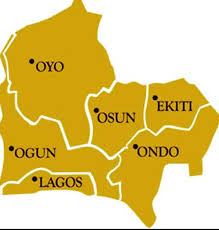
By Omolade Adegbuyi
The Whole Planet Initiative has launched a biological garden for the conservation of rare plant species in South-West, Nigeria.
The initiative is in response to threats to plant species historically linked to health and livelihood.
In a statement by WPI Executive Director, Adekola Adebukola Margaret made available to Irohinoodua said the group has
already collected over 2,000 plant species, ranging from medicinal and spiritual to edible plants which at the moment are almost extinct.
The Green Peoples Environmental Network, (GREPNET) a member of the International Alliance of Indigenous and Tribal Peoples of the Tropical Forest, (IAITPTF) based in Thailand has praised the initiative saying it would provide the necessary technical assistance for the project. The International Alliance is currently attending COP29 taking place in Baku, Azerbaijan
GREPNET has, therefore, called on the Federal Government and the South-West states to support the project.
WPI emphasizes the linkage between plant, human survival, spiritual wellbeing and interconnection between the cosmic and material world we live in, all of which are necessary for sustainable development.
The South-West, experts say, is home to hundreds of thousands of plant species that have played critical roles in the lives of the indigenous peoples of the region, spanning several centuries.
We are not only conserving the plants, we are also taking records of their indigenous names, uses, importance, and the environmental factors that nurture them.
The biological gardens will be located in the six South-West states and Kogi and Kwara states which are expected to serve as environmental compendium for researchers, pharmacologists and medical concerns all over the world.
Already, a team of experts is working on the project with the expectation that it will be launched in the first quarter of 2025. The project is in line with the United Nations Environmental Programme (UNEP) which deals with the importance of indigenous peoples and their role in the conservation of biological diversity.
Knowledge of plants explains human understanding of natural circles, the earth and how they are critical to preservation of natural biological resources from extinction. Nature itself defines humanity.
We are impressed with the interest this project has generated all over the world. A lot of institutions are anxious to work with us in the conservation of plants which is expected to be the first of its magnitude in Nigeria.
The South-West is home to forest-dependent people who are fast losing nature to the ravaging impact of climate change, deforestation, corporate greed and lack of environmental impact assessment by both government and non-state actors in project implementation framework.
The largest of the gardens is expected to be located in Oyo State with 28,000 square kilometres, by far the largest land area in the South-West.
We estimates that the initiative will generate jobs for thousands of young people, apart from providing a myriad of environmental training programmes for people in the West Africa sub-region.
The project will equally boost tourist potential and advance the campaign against effects of climate change.





